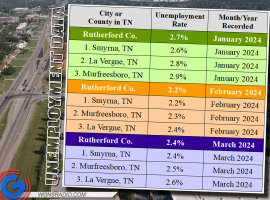People who voluntarily put themselves in the public eye lose at least a measure of control over their own lives, including their social media lives. MTSU Professor of Journalism Dr. Larry Burris says rightly or wrongly, if you don't want to subject yourself to public scrutiny, stay out of public view:
This is even more true for public officials, particularly if they want to encourage uninhibited, robust, and wide-open debate on public issues.
A public official who opens up a social media site for public discussion has to take the good with the bad, and with the exception of a narrow range of content, such as indecent, obscene, libelous, allow any and all comments. However, they also have to recognize that in almost all instances the discussion will soon degenerate into name calling, invective and vituperation.
The antidote for this sad state of affairs is moderated discussion. In this case the political figure should place a prominent note at the top of the page that the site is moderated, perhaps heavily. That will, of course, stifle robust and uninhibited debate, which is unfortunate.
Another problem is that any editing will raise questions of unfair bias; that the political figure is selectively silencing this or that group.
I've often thought there should be some way to develop an algorithm that will filter out irrelevant and insulting comments while still passing through even the most strongly worded and even off-the-wall but still on-target but non-insulting comments.
Then, once the algorithm works, the politician could sponsor a social media site, but put it into a kind of blind trust where independent editors could moderate the discussions.
Such a site would also force politicians to take an unequivocal stand on important issues of the day, and would allow for independent fact checking of what they say.
But, of course, politicians certainly don't want that kind of scrutiny.













